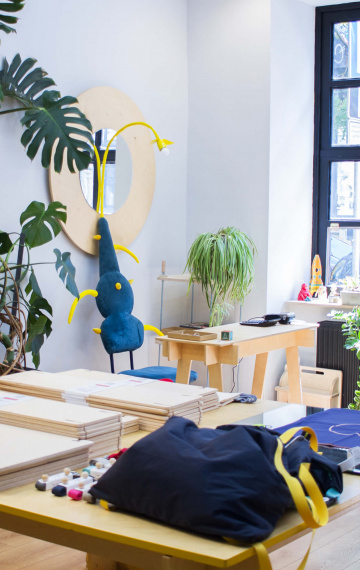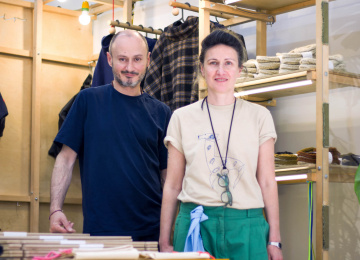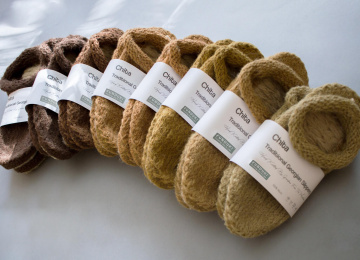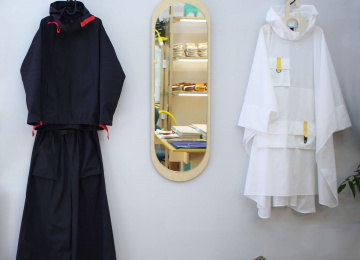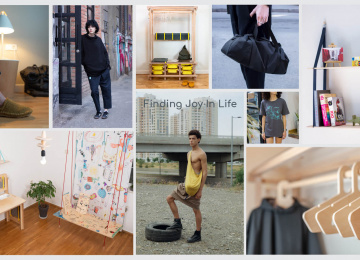
In recent years, Georgia has witnessed the emergence of a growing number of eco-friendly design companies. These enterprises have recognized the significance of sustainable practices and their impact on the environment. While some of the owners possess considerable expertise, others may require further knowledge, skills and contacts to thrive in both the local and international markets.
Eurochambres, an association that provides support to local chambers and business communities in the European Union and other regions, has taken proactive measures to assist through its EU4Business: Connecting Companies (EU4BCC) project. Funded under the EU4Business initiative of the European Union, the project aims to foster sustainable economic development and job creation in the Eastern Partnership (EaP) countries by facilitating the growth of small- and medium-sized enterprises (SMEs). Specifically, EU4BCC focuses on key sectors such as bio-food, creative industries, textiles, tourism, and wine, providing valuable support to enterprises operating within these industries.
Eco-friendly design store prepares for export with support from EU4Business and Eurochambres
Aleksandre Tsivtsivadze and his wife, Thea Chakhrakia, led a nomadic lifestyle, constantly traveling and changing homes. Their desire was to have comfortable, minimalistic, and lightweight belongings, such as clothes and furniture, that could be easily moved around. Their quest for a convenient lifestyle inspired them to establish a company that not only provided them with essential items but also brought the same comfort to others.
In 2012 the couple, together with Thea’s sister, Marika Chakhrakia, founded Funduki – “a design store, with a cultural approach and creative edge.”
Initially, the company struck deals with prominent corporations throughout Georgia, crafting custom-designed corporate gifts that these firms would distribute to their employees or business partners. It wasn't long before they realized the ultimate goal that they were looking forward to the most: to have their own production and open a retail store.
Since then, Funduki has evolved into a thriving business that offers a unique range of furniture, clothes, and accessories known for their comfort, simplicity, and user-friendly designs. Except that there is one more characteristic that differentiates Funduki’s products from what’s available on the Georgian market.
“Each item comes with what we call a bonus use,” the founder Aleksandre Tsivtsivadze explained.
Funduki's bags serve a dual purpose, functioning both as crossbody bags and backpacks. By removing the back piece from the swing that they produce, it can transform into a comfortable reclining chair. Likewise, their versatile picnic blankets double as raincoats, ensuring protection from unexpected weather changes. Funduki's innovative designs truly offer a remarkable blend of functionality and adaptability that doesn’t go unnoticed by their customers.
“We take immense pride when individuals can instantly recognize a product as being crafted by Funduki as soon as they lay eyes on it,” Tsivtsivadze added.
At Funduki, a word often heard is "eco-comfortable," a term rarely used in the Georgian language. The significance behind it lies in the fact that over 90% of the textiles used by Funduki are either repurposed from leftover pieces or sourced from sustainable materials designed to endure without damage for extended periods. Fashion waste is a major issue in today’s world: out of the annual production of 100 billion garments, approximately 92 million tonnes ultimately end up in landfills.
In furniture, Funduki uses wood veneer which stands as a genuinely renewable and sustainable construction material. It possesses recyclable, non-toxic, and biodegradable properties, surpassing other materials in terms of energy efficiency.
Over the years Funduki’s popularity grew outside Georgia, reaching Estonia’s capital Tallinn where the team opened a shop in 2020. Unfortunately, two weeks later the devastating COVID-19 pandemic struck the world, abruptly thwarting Funduki's plans. In the midst of the chaos, Tsivtsivadze closed the store and managed to secure a seat on one of the final flights departing from Tallinn to Tbilisi, Georgia. Back home he and the team had to close the store for public health security reasons.
“It all started so well and finished in such a bad way,” Tsivtsivadze said.
Wake-up call for growth
The nationwide closure of businesses served as a wake-up call for him and his partners, compelling them to explore alternative avenues for the growth of Funduki. Luckily, in 2021 Funduki got into the project Enhancing Export Capacities for Georgian and Estonian SMEs – Export Design, supported by the EU4BCC. The company got assistance in export activities, participated in study visits, had a number of B2B meetings, and placed their productions in the leading concept store in Tallinn.
Tsivtsivadze said Funduki now makes over 2500-3000 products a year. This includes quick-to-sew garments like skirts, completed within an hour, to meticulously hand-painted bags that demand additional time and effort. In addition to their dedicated retail shop, they have expanded their reach to renowned stores throughout Georgia, as well as being able to accept orders from individual and corporate clients.
Since the initial support, the EU4BCC project has opened many doors for this company. Tsivtsivadze traveled to Tallinn, Estonia, where he collaborated with Radis Furniture which makes environmentally friendly and sustainable plywood furniture. The partnership was initially established during the project's matchmaking activities. Utilizing the mobility program, Funduki and Radis Furniture effectively created and manufactured the shelf system, which is now available for purchase in both the Estonian and German markets.
“I can say, I know everyone who is a designer in Tallinn,” Tsivtsivadze said, indicating that the project helped them strengthen collaboration with fellow professionals in the design industry, fostering a fruitful exchange of ideas and knowledge. Recently Tsivtsivadze reached out to another local producer in Tallinn whom they had met during the project and is now planning to produce lighting fixtures in collaboration.
Meanwhile, Funduki’s products have reached Venice and Geneva where their famous Georgian traditional “Chita” (knitted shoes) is sold in several retail stores. Funduki’s popularity both inside Georgia and beyond serves as an indication that there is a great potential for export – something the company aspires to do in the nearest future.
After all, Tsivtsivadze and his team haven’t given up on a dream to re-open a store in Tallinn.
“High quality is our signature and something we don’t ever want to lose. It’s also what others love about Funduki and what makes us think that we might have a successful future in export.”

